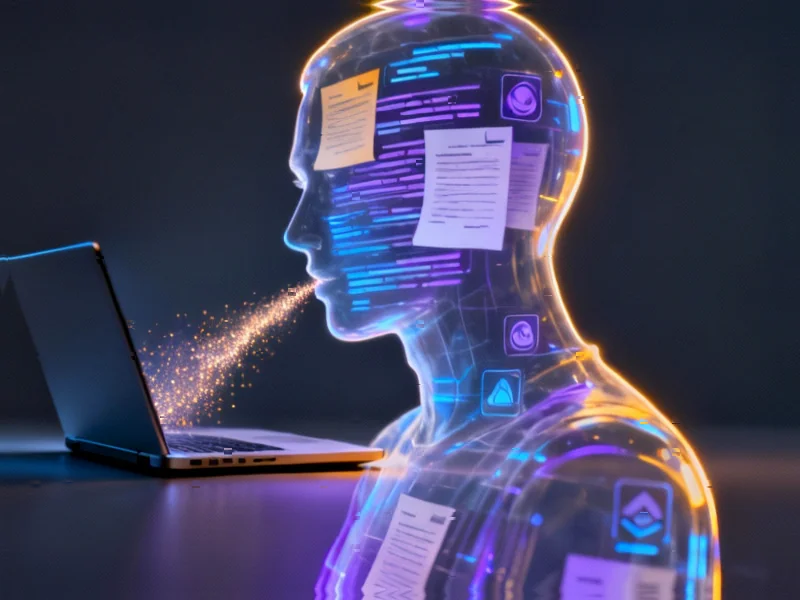According to Ars Technica, the Internet Archive recently celebrated archiving its trillionth webpage while emerging from years of bruising copyright battles that threatened to bankrupt the nonprofit. The organization lost its final appeal in 2024 against book publishers over its Open Library project, resulting in the removal of more than 500,000 books and confidential settlements that could have reached $400 million in damages. Founder Brewster Kahle described the outcome as making “the world stupider” despite the Archive’s survival, noting that the legal fights effectively “wiped out the Library.” The Archive also recently settled another lawsuit over its Great 78 Project after music publishers sought up to $700 million in damages, though both settlements remain confidential. Despite these setbacks, the Archive continues with new initiatives including Democracy’s Library and maintains its status as a newly designated federal depository library.
The Business Model Battle Behind the Legal Fights
The fundamental conflict here isn’t really about copyright law—it’s about competing business models for digital content distribution. Publishers have shifted from selling books to licensing access through platforms that generate recurring revenue, while libraries traditionally operated on a one-time purchase model that enabled permanent access. The Internet Archive’s controlled digital lending challenged this licensing paradigm by creating what amounted to a digital first-sale doctrine, allowing limited simultaneous access to digitized physical books they owned. This threatened the entire subscription-based economy that publishers have built around digital content, where libraries pay significantly more for temporary access than consumers pay for permanent ownership.
Statutory Damages as Business Weapon
The most concerning aspect for other digital preservation efforts is how statutory damages create existential risk for well-intentioned projects. As copyright expert Brandon Butler noted, U.S. copyright law uniquely allows rights holders to elect massive payouts without proving actual harm. When you multiply statutory damages across hundreds of thousands of works—even for projects digitizing culturally significant but commercially irrelevant materials like 78 RPM records—the financial exposure becomes astronomical. This creates a chilling effect that goes far beyond the specific legal rulings, potentially stalling digitization efforts at institutions that lack the Internet Archive’s resilience and donor support.
The Wikipedia Opportunity Cost
One of the most significant business casualties was the lost integration between Wikipedia and the Open Library. The Archive’s vision wasn’t primarily about book lending—it was about creating a research ecosystem where Wikipedia articles could link directly to verified source material. This would have transformed Wikipedia from a secondary source to a primary research gateway, potentially creating new revenue streams for publishers through increased discovery while strengthening the platform’s authority. Instead, we’re left with a system where the world’s most popular research tool remains disconnected from the source materials that would make it most valuable, representing a massive lost opportunity for knowledge commerce.
AI and the Future of Digital Preservation
The timing of these legal settlements coincides with the AI revolution, creating an ironic dichotomy. While AI companies are training their models on copyrighted materials with relative impunity due to their financial capacity for legal battles, libraries face existential threats for much narrower preservation activities. This creates a dangerous concentration of information control where only the best-funded corporations can afford to work with cultural materials. As Kahle correctly observes, we’re heading toward a future where information access becomes mediated by corporate interests rather than public institutions, potentially undermining the very ecosystem that fuels AI training data in the first place.
The Path Forward for Digital Libraries
The Internet Archive’s pivot to Democracy’s Library represents a strategic shift toward government documents and public domain materials where the legal landscape is clearer. This reflects a broader trend where under-resourced institutions must increasingly avoid commercially valuable content to survive. Meanwhile, some states are crafting legislation to protect library functions from restrictive licensing practices. The business opportunity here lies in creating new models that balance preservation with compensation—perhaps through collective licensing agreements or digital first-sale doctrines that acknowledge the unique nature of digital goods while preserving library missions.
Broader Implications for Knowledge Commerce
What’s ultimately at stake is whether we’ll have a diverse knowledge ecosystem with multiple winners or a consolidated information marketplace controlled by a few corporate gatekeepers. The Internet Archive cases demonstrate how current copyright enforcement mechanisms favor concentration over diversity. As library funding faces continued pressure and digitization becomes riskier, we risk creating a knowledge aristocracy where comprehensive research becomes a privilege of the well-funded rather than a right of the curious. The business challenge—and opportunity—is designing systems that reward creators while preserving the democratic access to knowledge that drives human progress.




